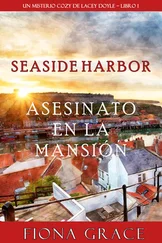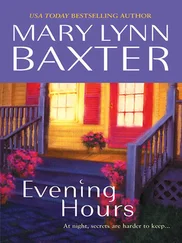I realize she has a large bag, even bigger than the bag I have. I say, Did you get my dad cowboy boots or something? She opens the bag and inside are three boxes. She says, I just didn’t want to get him the wrong size. I didn’t want to think of him walking across the airport in Atlanta with shoes that made his feet hurt. She opens one of the boxes. They are soft-leather penny loafers. My dad wears penny loafers, she says, he swears there is nothing more comfortable.
I look down into the bag and see two other boxes.
I got them in three sizes, she says.
That is pretty thoughtful of you, I say.
Let’s go, she says.
I must have watched my father walk around a lot in penny loafers, sockless, watering the grass, gardening, waterproofing the deck, wandering through the maze of our house, washing the car, getting the paper or checking the mailbox, going to the grocery store, grilling steaks, standing on sidelines while I or Miriam played sports. I remember my father falling from a tree he was cutting. He’d been swarmed by bees. He screamed at us all to get inside and somehow picked himself up after the fall and ran around trying to wave the bees away from his face until he finally jumped the fence into the backyard and dove into the pool. I remember my mother swimming in the pool, drinking iced tea, or, if her friends were over, drinking gin and tonics, and either my father was there or he was absent — but the memory is curiously not of my mother but of where my father might have stood or not stood. One day, when a lot of friends were over, my mother broke her leg while running around the pool. The bone came clear out of her skin. My father was in California, so the neighbors gathered around her and waited for the ambulance to come. When my mother came back from the hospital, she wore a cast from her toes to her hips, and a big gurney came with her, which was adjustable, so she could raise her legs or her back. She was in that gurney for a month, and in the cast for longer. My grandmother did all the cooking. Miriam and I did the housework. My grandmother, when she drove us around the quiet streets of our neighborhood, let Miriam and me stand on top of the car and pretend to be surfing. Once, Miriam fell and broke her arm. Our grandmother was terrified and thought she would end up in jail. She was also terrified of how my father would respond. He was in California and he wouldn’t be home for weeks, so my mother decided not to tell him. We all decided, together, that my father would never forgive such recklessness. Even if my mother had tried to take the blame, as she first decided she would do, we all knew my father would know she was lying, and then he would not forgive her deceit. About six months later it came out — it was always going to, I guess — when my father was home for the summer, and he laughed and laughed at our decision to keep it from him — had he inspired such fear in all of us? And we all thought we had escaped retribution until, later, my father quietly took our grandmother away for a talk, and she was — though it sounds slightly overtheatrical to say it — never the same with us again. And I do, now, remember beating up some kids over Miriam. I was a big kid. Miriam was quiet. I remember once hearing that two boys had taken Miriam to the woods. I ran after them. I found them trying to lock her in a shed, or some kind of abandoned house, in the middle of the woods. The woods I speak of — dense pine forests near the Gulf — are dark and endless, they are useless for timber, they are overgrown, they are full of snakes, they are not places you go to for nature and reflection. Everywhere, slim pine trunks rise up to the high green needles that darken the sunlight. There is just enough room to walk between these trees, and at dusk, the shadows that move through them as you walk seem like bodies darting from tree trunk to tree trunk. The ground is nothing but fallen needles, reddened, dry on the top, wet and compacted down below. If you happen to come across a little trail, or a dirt track made of two parallel ruts — made by tires — it usually leads to a natural break in the woods, a pond — dried or not — a clearing, a creek bed, and so on, and generally you find a structure there, a shed or a house that nobody lives in. Miriam was nine or ten, I guess, when she was dragged out there by two boys. It was something that was happening in our town. Boys my age were taking girls Miriam’s age out to these places and locking them in these sheds or threatening to lock them in. It was like a game. It’s hard to believe, now, that anybody would do such a thing, even the redneck boys in our town. Some of the girls were lucky — they weren’t locked inside. Others, like Miriam, weren’t as lucky. But I think that maybe none of the girls was as scared as Miriam. I remember I found out about what was happening to Miriam from some girls who were laughing about it, and who claimed that they had been taken, it was okay. But Miriam wasn’t like these people. So I ran into the woods. I knew the woods very well, and I knew where the boys would take her. I could hear her crying out from a long way off. I couldn’t run fast because of the trees, I couldn’t run in a straight line. I was also slowed by the ground, because it was, in places, so soft that my feet sank, and the needles were up to my knees. I finally got there. One boy ran off but I grabbed the other one. I let Miriam out. She couldn’t breathe. I have still never seen, in my life, a face as terrified as her face. She thought she was covered in spiders, I never had the chance to check. She ran away. She didn’t go straight home. She just walked the streets for hours — I had to get on my bike and go find her. I beat the kid up. I didn’t want to hurt him so much that he’d go looking for revenge, come back and take that revenge out on Miriam. But I had to do something. I had to teach him a lesson. Now that I am here in this airport I think I probably should have killed him. What would have happened if I hadn’t come? How long would they have kept her in there? Another minute? An hour? And what might they have done to her when they released her, when they — these two stupid, violent boys — realized they had the power to so thoroughly torment and dominate somebody? A few days after that, I went into the woods by myself, I walked the path those boys would have led Miriam. I went slowly. I looked up at the canopy above. I tried to think of everything as Miriam had thought of it — of how different the light in the treetops might have seemed to her, of how strange her own senses might have seemed to her — I tried to emulate her panic in my senses, to smell and hear nothing, to feel nothing, while all her energies were channeled into the strength to fight or escape, which was not enough strength. They had opened the door somehow and pushed her in, and when I arrived they were holding the door and laughing. That first boy saw me and ran. The second looked at me and his look said, Well, you found us, no harm done, though. So I gave him a bloody nose and I choked him and I kicked him in the head and ribs. When I went back, I saw that nobody had come to repair the lock on the door, so I opened it. I was sick with fear. I couldn’t see much. There wasn’t any furniture. There was some wood, a lot of cut logs. There weren’t any windows. The shed was like every structure you find in places like that — a cheap wooden frame held together by screws, brackets, and sometimes nails, covered with hand-cut, possibly secondhand, siding. The air inside was hot and stale. I went in and turned around and looked out at what Miriam would have seen last, before the door closed, except for the faces of the two boys trying to close the door on her, their eyes and fingers. Then I closed the door on myself and stood in the darkness for as long as possible. I might have lasted thirty seconds or a minute, but I knew I could escape whenever I wanted, I simply had to push the door open. But when I did push, the bottom edge of the door of the shed got slightly stuck in the earth, just a little — but it was enough to fill my thoughts with dread — and instead of lifting the door to make it open easier, I lunged at the door, shoulder first, with all my might, and tumbled out into the woods again. I found two big spiders on me. One on my shirt and one on my jeans. I figured I was covered by hundreds, so I undressed, as fast as I could, throwing my clothes on the little dirt road that led from the shed back to whatever country road you came to a mile or so later and stomped on my clothes and whipped them in the air. I rubbed my head and danced on the little dirt road. Then I went home.
Читать дальше











